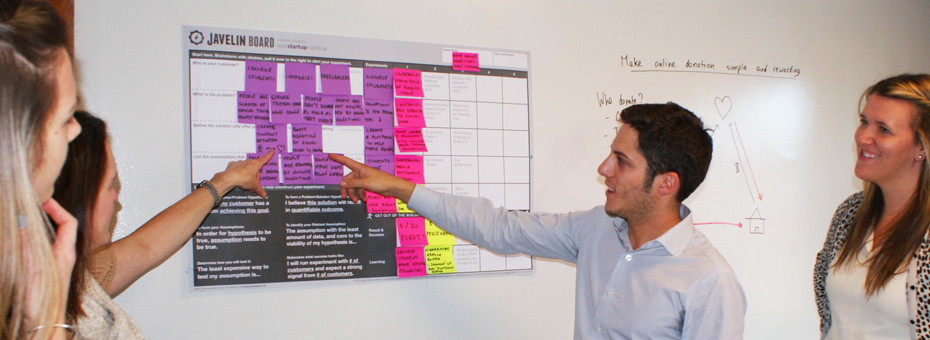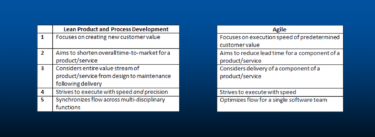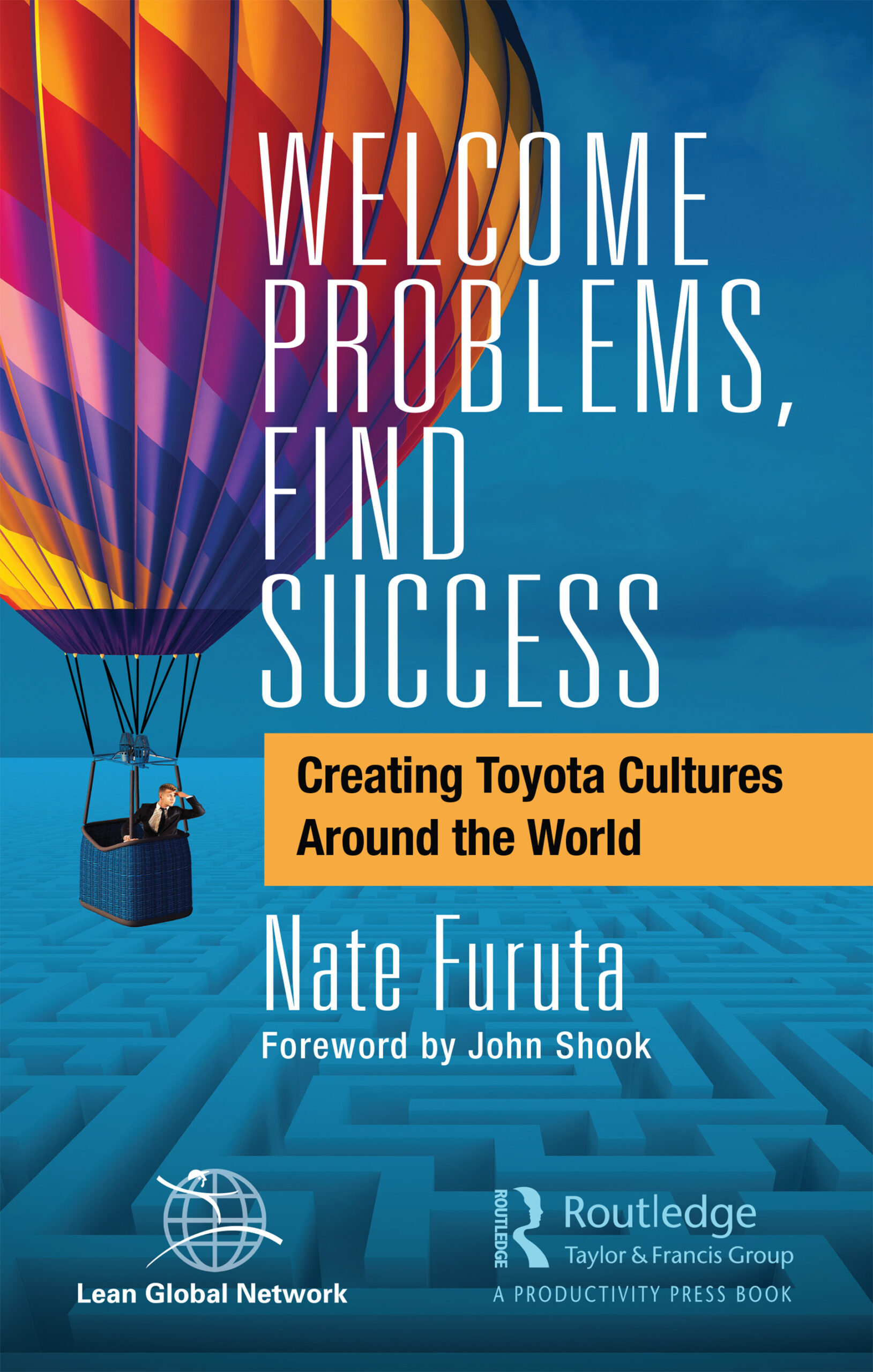After spending the first 20 years of my life in Italy, I came to Boston for college. And now I’m working with friends on my first startup. As I’m curious about how Lean principles can be applied to startups, I decided to check out the Lean Startup Machine workshop last month at the Cambridge Innovation Center.
Lean Startup Machine (LSM) is an intensive three-day workshop in which you learn how to build a product that your customer actually wants. So far, it’s taken place in 40 cities around the world. There were roughly 60 participants in my workshop, all from different countries with different backgrounds and interests. The biggest lesson for me was the importance of constantly testing your assumptions directly with your customers and if necessary “pivoting” your product to match your customer’s needs.
Here’s how it works. You start on Friday evening and finish at the end of the weekend. Everyone comes with an idea for a business and has 50 seconds to pitch it to the full group. After a vote, the most popular ideas are selected. The owners of those ideas form a team of up to five people to build on their ideas, competing against the other teams. Each team develops a problem hypothesis, a solution hypothesis, and then determines assumptions that need to hold true in order for their business to be successful. This process is run using something called the Javelin board, where you move through a problem-centric approach and arrive at your solution by learning about your customer through fast experiments. Sound familiar? Once your team defines its assumptions, you choose the riskiest one and, as they say, “get out of the building!” (aka to the gemba) to survey your potential customers. This either validates or invalidates your hypothesis.
My team’s business idea was to boost online donations to charities by making them more rewarding for potential donors. We decided to target college students as potential customers, so we spent the morning talking to people at Harvard, MIT, and Boston University. If after this first session your assumptions are validated, your team creates a concierge MVP (Minimum Viable Product), which is all about delivering the product as a service to your customer in a way that matches their expectations. But this wasn’t the case for my team. Our assumptions about our customer weren’t validated, nor were they for any of the other 14 teams.
“Pivot,” a familiar term to anyone who has read Eric Ries’s book The Lean Startup, means a course correction of your business model. The basic idea is to test your idea/product to minimize your waste of resources in case you are headed off track. For my team, this testing process, quickly made us realize that our idea (which we originally thought was amazing!) had to be totally rethought. Talking to potential customers saved us time and effort, and would have saved us money in a real life scenario. We were then able to pivot our idea and find a better solution for our customer.
Back in the workshop at the CIC, it was encouraging to hear that companies like Facebook, Instagram, and Groupon, just to name a few, only became successful after pivoting their idea or product. Very few companies have the luck of getting it right the first time. Having an idea for a company is not enough; it is only through frequent experiments that you learn and adapt to what customers want in a fast changing business environment.
What do Lean and the lean startup movement share? I’m still learning the answer to this question, but The Lean Startup Machine teaches us to “fail fast, succeed faster,” just as Lean teaches us this same idea by running short experiments through PDCA cycles or through set-based design. If your idea is invalidated, you go back to your Javelin board and prepare to run a new experiment, following the same procedure. You repeat this cycle until all your core assumptions are validated.
Over the course of the three day workshop, we also relied on the support of mentors who helped us through a hands-on learning process. A few business leaders from the startup world gave lectures in which they shared useful lessons learned. Elias Torres, VP of engineering at HubSpot, for example, spoke about his experience in launching his marketing software startup Performable, which later was acquired by HubSpot. One useful tip he shared was about the importance of charging potential customers for what you are selling, because it is only then that you understand if people are truly interested in your product.
Looking back, the weekend was intense and chaotic. My team struggled a lot as we had to pivot our idea twice after realizing we were trying to tackle a non-existent customer problem. Time was not on our side. You can imagine how tense things got for us when we were six hours from the deadline! In order not to fall behind, we had to work together to take small actions quickly. This was great though because we couldn’t overthink our product or worry too much about which step was the right step to take. There simply wasn’t time to deliberate. Despite the stress, the workshop was tremendously valuable. In the end, all of the teams gave a presentation on their final product and explained how they got there. Almost everybody came out with a great product… or at least a much stronger one than they started out with.
Just imagine what we could do if we all experimented so frequently, understood our customers, worked collaboratively, and pivoted so quickly in the real world.





